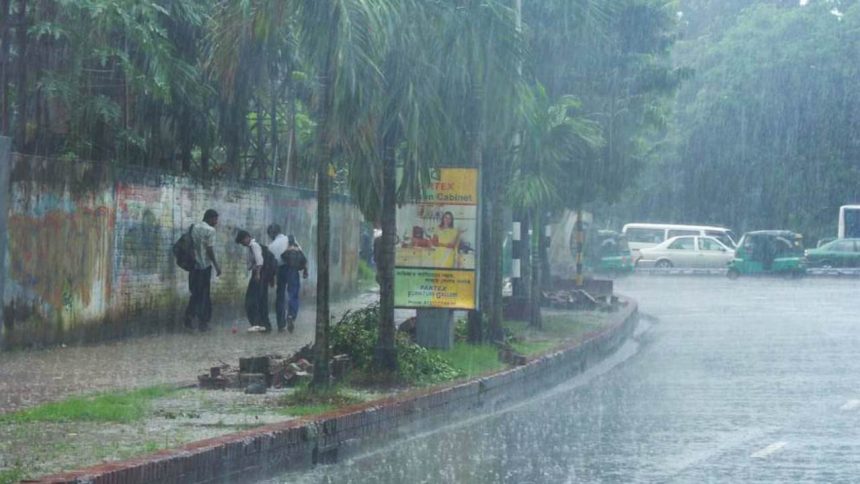Lahore, the second-largest city in Pakistan, witnessed record rainfall earlier this week, prompting fears of a possible climate catastrophe.
Pakistan is among the countries most vulnerable to the effects of climate change, despite contributing minimally to the global problem. With glaciers melting up north, and climatic patterns changing for the worse, Pakistan faces the risk of floods and landslides.
Earlier this week, Lahore, the capital of Punjab, received more rainfall than it did in the past 44 years, leading to the deaths of six individuals. In Khyber Pakhtunkhwa, about 24 individuals, including 12 children, died due to rain and floods.
The concerns over a possible climate catastrophe are not unfounded and are rooted in the floods of 2022, which killed over 1,700 individuals and displaced millions of others, besides causing major infrastructure damages.
With a struggling economy, Pakistan faces the uphill task of dealing with climate change and the problems stemming from it. The global pledges in the aftermath of the 2022 floods have fallen short, and Pakistan has barely received any funds to help it build resilient infrastructure.
Therefore, in the absence of international assistance, Pakistan is left to explore domestic options. Population control is one option often suggested by experts in this domain. If Pakistan succeeds in controlling its population growth, it can allocate resources to the development of resilient infrastructure. Another aspect is that the more densely populated the country is the more food insecurity it might face.
Pak-Kazakh cooperation
Pakistan and Kazakhstan have agreed to collaborate to address climate and environmental issues, besides dealing with the shortage of resources. This agreement was reached during a meeting between Prime Minister’s Coordinator on Climate Change Romina Khurshid Alam and Ambassador of Kazakhstan to Pakistan Yerzhan Kistafin.
The Kazakh delegation led by the envoy expressed his country’s willingness to work with Pakistan on climate resilience, climate-smart agriculture, and renewable energy. The Pakistani side appreciated Kazakhstan’s offer and expressed commitment to mobilizing resources for the same.
Both sides spoke about the shared environmental concerns amid global warming. The premier’s aide told the envoy that both countries face similar risks, and emphasized the importance of regional cooperation to deal with the situation. The envoy acknowledged this and reiterated his country’s commitment to collaborating with Pakistan on the matter.
It is worth noting here that a few days ago, President Asif Ali Zardari, during a meeting with a Commonwealth delegation, spoke about the importance of strengthening ties with the association in various domains, including climate change. The president noted how climate change is adversely affecting Pakistan – a fact widely acknowledged by the international community. He also highlighted the plantation of 2 million mangroves in Sindh to minimize the effects of climate change. He also mentioned how the provincial government had started building 2 million flood-resilient houses in the aftermath of the devastating floods of 2022.
Climate Change Authority
The Supreme Court has also ordered the Ministry of Climate Change to constitute a Climate Change Authority to deal with related matters, warning that the failure to do so would render the ministry’s secretary liable for contempt. The top court also said that if the authority is not constituted by the 15th of August, the secretary would have to appear before it to explain why they should not initiate contempt proceedings against him.
The court underscored the urgency of the situation, saying that the country needs the authority to deal with matters related to climate change. It also regretted that the ministry has been ignoring this fact.
















